You Magazine published this article on 7 February 2019.
Authors: Marelize Potgieter and Wendy Stelzmann
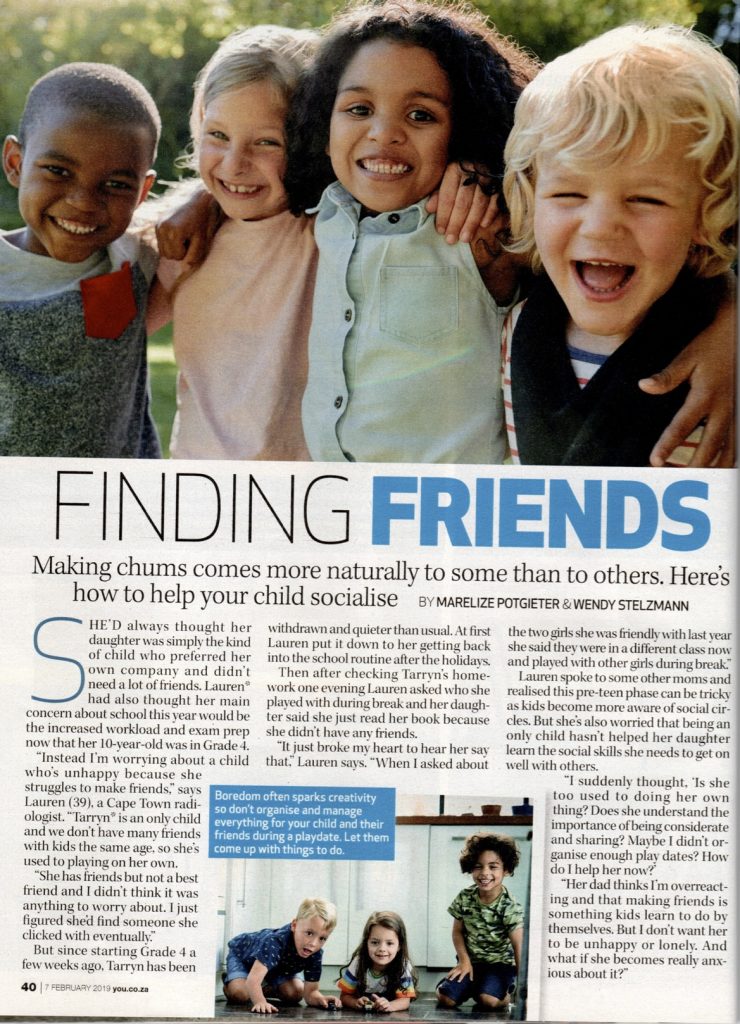

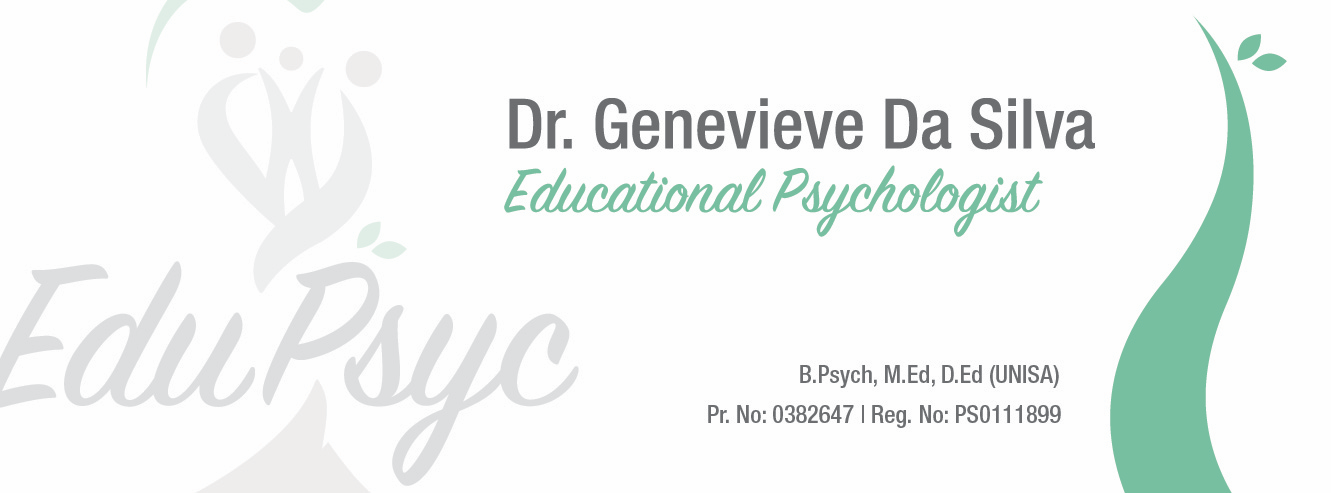
You Magazine published this article on 7 February 2019.
Authors: Marelize Potgieter and Wendy Stelzmann


Weekend Argus published this article on 8 September 2018
Author: Shanice Naidoo
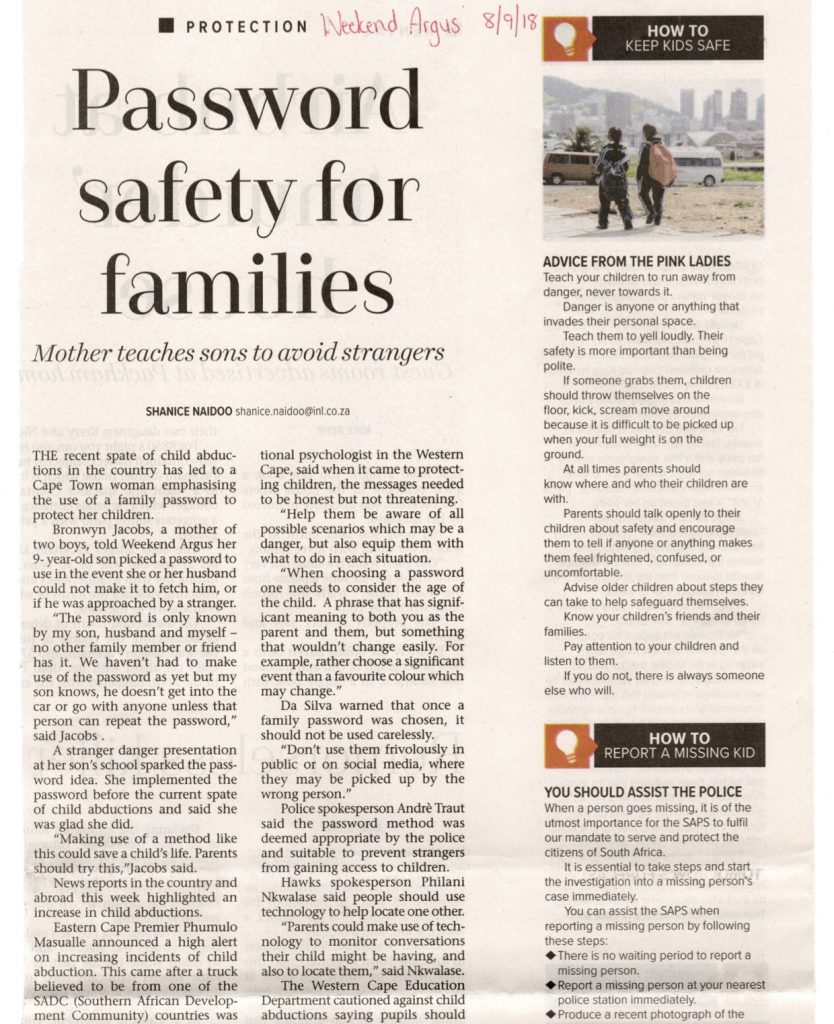
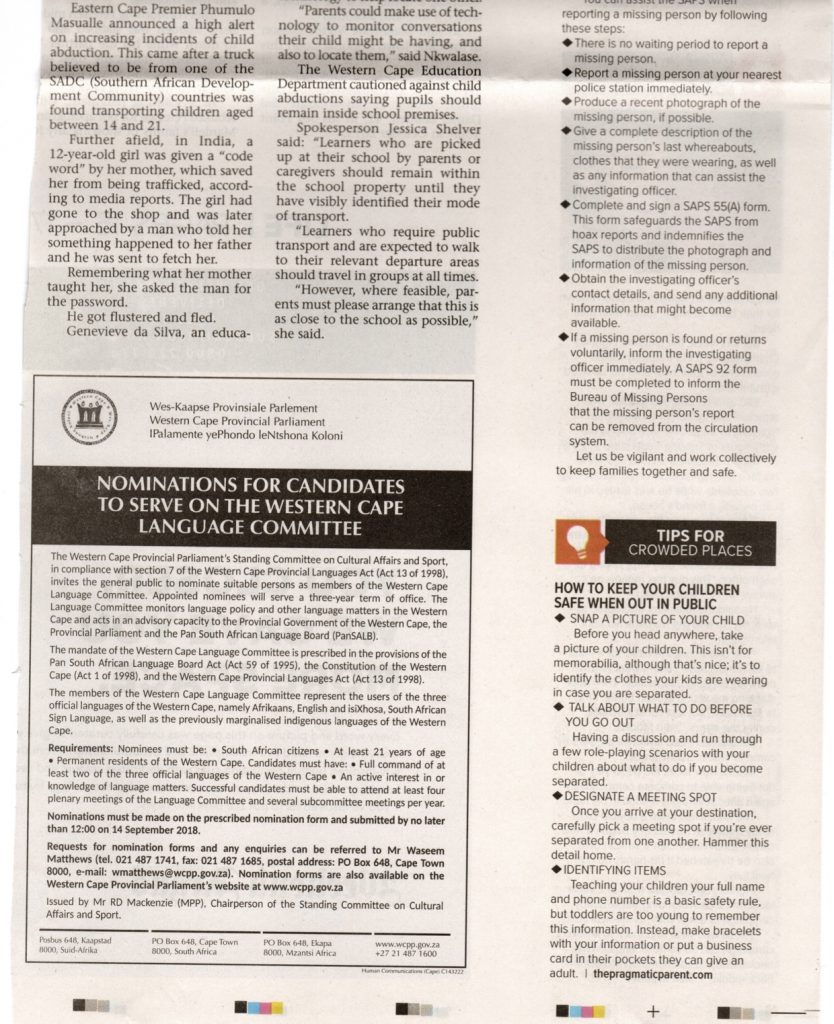
BestMed featured this article in their magazine, Bounce, Autumn/Winter 2016.
Author: Karen Nel
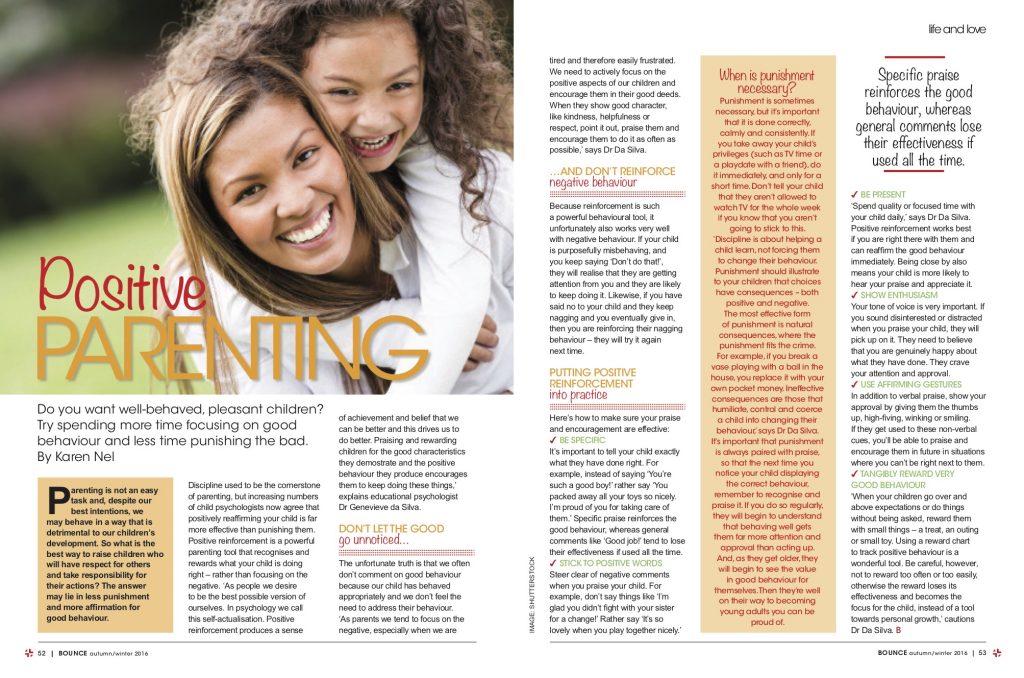
Time is a precious commodity! Funnily enough it is the one commodity that is shared equally by humanity. There is no stockpile in a specific country. There is no authority that distributes it to the highest bidder. It is given freely and fairly – 24 hours every day. If we think money is precious, and healthy financial functioning depends on wise investments and working within a budget, shouldn’t our approach to time be the same?

The problem is that we spend our 24hours on so much stuff – some important, some trivial. We stretch the time we have to cover more than it should (much like we try to do with our income). It is only after much time and much reflection that we evaluate the time we’ve spent and discover that what is most important to us hasn’t featured as much as we’d hoped. We need to identify what is a wise investment – what gives us a good return? We should evaluate our activities and the time available to us and plan how much time can be spent in these various areas, and where we have to say, “No!”.
One of the wise investment areas is quality time with our children. Investing is about putting a little bit away, regularly, over a long period of time. The earlier you start investing, even a little amount, the greater the return at the end of the investment period. The later your start, the more you have to put in. Often I hear parents complain that they don’t have time – and they feel guilty! I find myself in this place often. We try compensate with expensive toys and games, exhilarating experiences and over-the-top consolations. Every day we promise ourselves to ‘make time’. But the reality is that makingtime is impossible. All we can do is prioritise our time differently.
Moments with our children are priceless – and like time are irreplaceable. The good news is that it is in the everyday moments that our investment grows. Don’t overlook them and don’t underestimate them.

Why not start with one or two of these time deposits every day:
May I encourage you, as a parent, acknowledge that time is your most precious commodity. And time with your children a priceless resource. Fight for it! Do not give it up for trivial pursuits. Prioritise the little things – a certain time to be engaged with your kids in simple ways, every day. It is here that you get to enjoy the precious moments. In the ordinary make extraordinary memories. Begin a wise investment today – small deposits, daily, over time.
Clicks Clubcard magazine featured this article in January 2017.
Author: Karen Nel
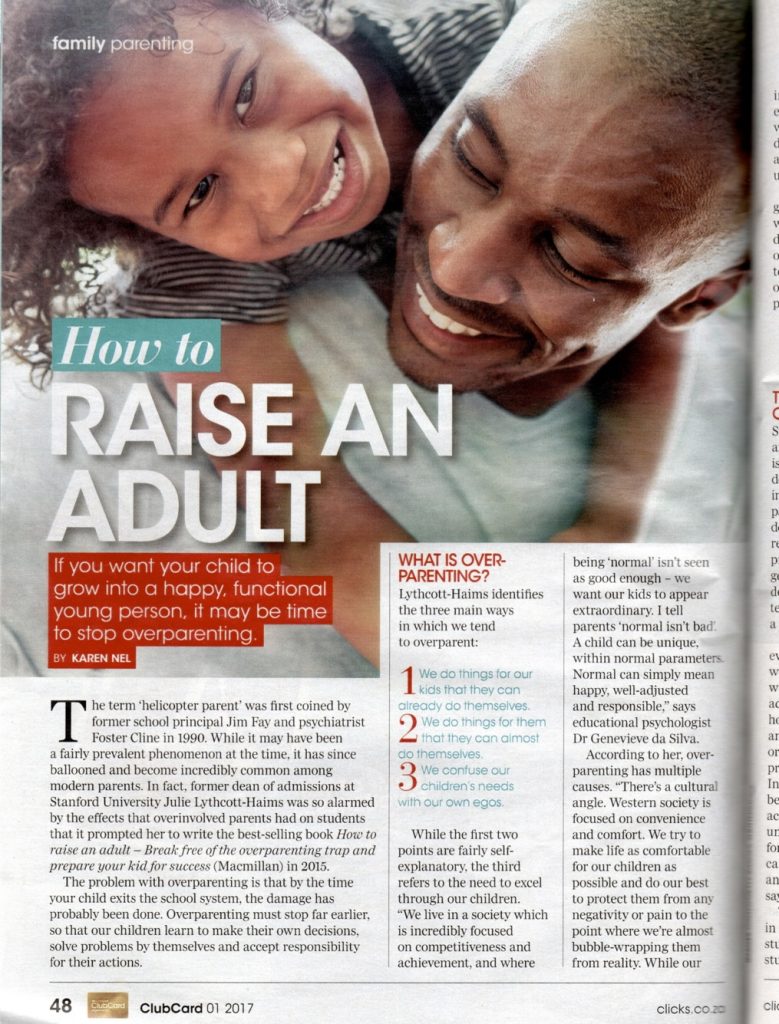
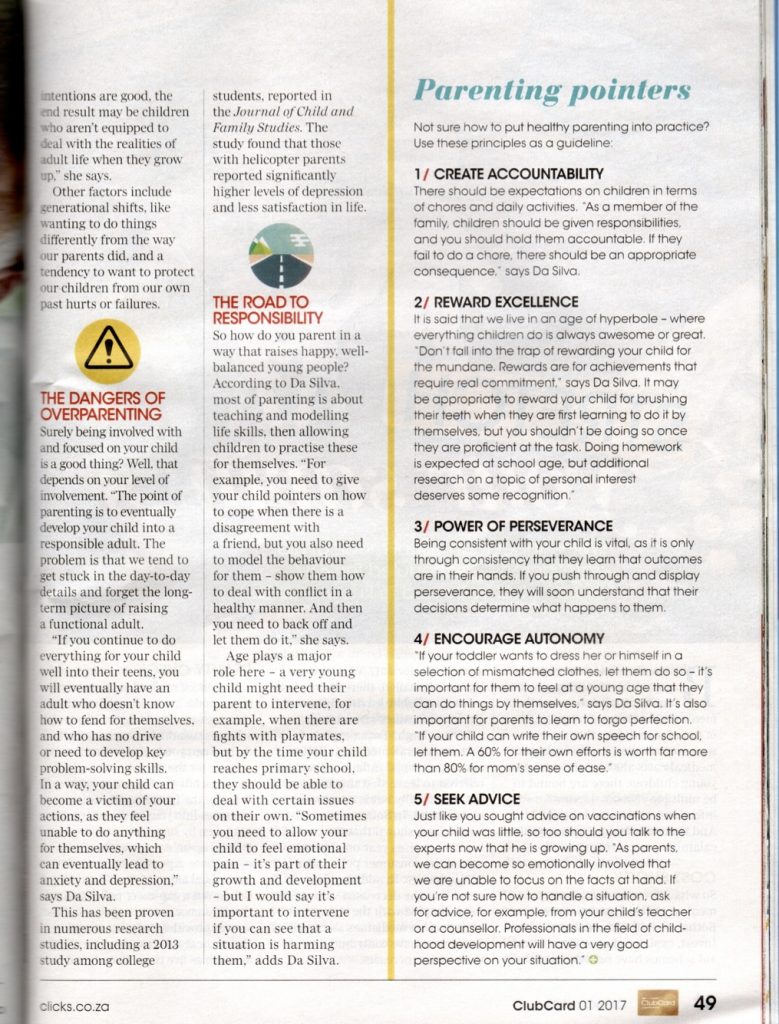
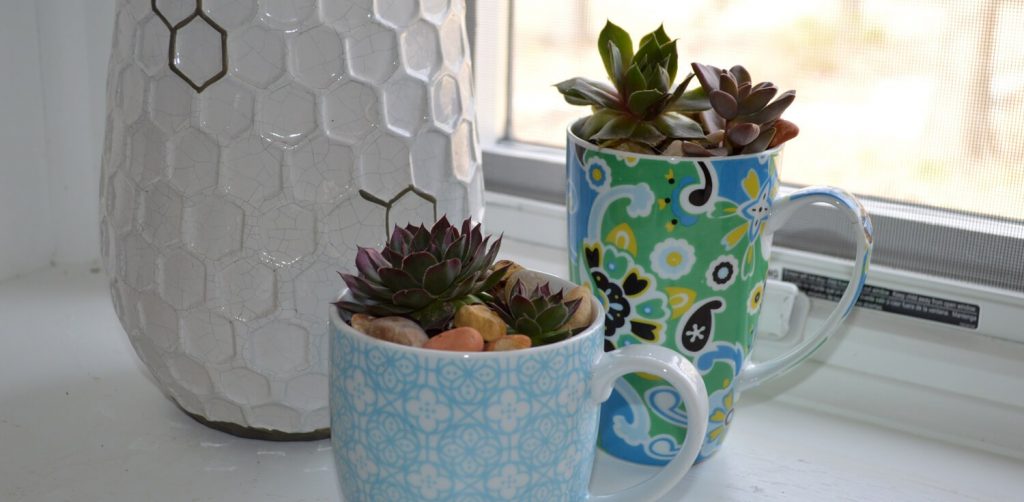
One of the benefits of living in Cape Town is the array of markets one has access to. Artisan foods, craft beers and upcycled products… it’s a wonderland of creative genius. My favourite stalls are run by those who have upcycled what others would have considered rubbish. A cup with a broken handle turned into a beautiful pot plant. An old window frame transformed into a work of art. Scraps of metal moulded into a magnificent baobab tree. What does it take for someone to look beyond the broken and see the potential?
A different perspective.
Our approach in society is very much the same. There are two main perspectives in how we perceive and behave towards others who are different. The first is to focus on the problem. In psychology, this is known as the needs-based or medical model. Thanks to the wonders of modern medicine over the last few centuries, we’ve been able to isolate the root cause of diseases and find cures and preventions. However, it has also caused us to replicate this way of thinking in our everyday lives. “What’s the problem?” We ask ourselves.
As parents, we might see that our child’s behaviour is unacceptable and ask, “What’s wrong with this kid?” We might go further to ask, “What is happening at school? What am I doing wrong?” As a teacher, we may notice that a child is unable to complete the required tasks and think, “What’s wrong with this student?” We might have the insight to ask, “What is happening at home? Is there something going on in class? Am I doing something wrong?” These questions can help us unearth difficulties and challenges within and around a child.
Unfortunately, one problem just leads to another problem, and another, and another. It can leave us feeling overwhelmed, paralysed and disheartened. When all we can see is the problem, the person gets lost, labelled and belittled – the ADHD kid, the bully, the slow learner, the uncooperative one, the unavailable parent, the incompetent teacher… Much like the trash we so easily discard once it breaks, we discard the individual and replace them with a generalisation.
On the other hand, a different perspective is one that acknowledges that there is a problem. But it shifts the focus onto the skills and resources available. Strengths not only in the person, but around the person. This is known as an asset-based approach. This perspective requires a complete shift in thinking. Instead of asking, “What is wrong?” We ask, “What is useful?”
While a cup without a handle may not be suitable for drinking tea, it is still useful for holding substance – soil, a succulent, and some pebbles. A glassless window frame cannot keep the wind out of a house, but it can frame some precious memories. The asset-based approach recognises that the original design is not being achieved, but that the usefulness of product lies within its unique makeup. Instead of just seeing the child’s problem, we see the strengths of the child and utilise them to his or her benefit. We recognise that there may be difficulties within class, or home, or school, but we find those areas where the child flourishes and use them to his or her advantage. We build on the strengths so that the child has resources available to overcome the challenges. We recognise the individual’s uniqueness and see his or her potential for the future.
It means looking beyond the problem, and seeing the person.
The D-Word!!!! Feared by many – misunderstood by most… DISCIPLINE!!
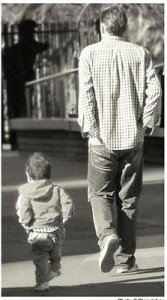
I have heard some phrase it this way – “Discipline is not what you do to a child, but what you do for a child”. As a parent one of the key aspects of child rearing is discipline. We discipline our children for a number of reasons. Discipline teaches our children the difference between acceptable and unacceptable behaviour. Discipline encourages self-control rather than chaos. Discipline encourages certain characteristics and values which we want our children to internalise.
We have all heard the phrase “Monkey See, Monkey Do”. The same is true for children. Parents discipline children through everyday interactions. There are a number of methods that are more effective than others when it comes to discipline – but I’ll leave that for another blog. As parents, we need to realize that children learn through watching us interact with the world. They often act out what they see us modeling. We then reinforce or discourage these actions as we engage our children.
For example, children learn how to have a voice by watching us voice our opinions and concerns, however they learn to use their voice when we allow them to voice their concerns and opinions. Do we speak and allow our children to speak out in an appropriate or inappropriate way? Children learn how to listen to others when then see and experience us listening, and they learn to listen when we expect them to listen in return. Do we listen with a half ear? Do we help our children focus before we start speaking? Children learn to respect others when they see how we respect others and when they receive respect from us. Children practice respect when we expect respect from them and correct them when they interact with others. Children see, Children do – and parents monitor and correct when necessary.
Before we get caught up with how we discipline – we as parents need to know why we discipline. If everything we do moulds our children for life, then what life do we want for our children? We discipline them so they can learn behaviour, self-control, values and character that will lead them through life successfully. Ask yourself which values you are showing them today through your daily interactions with others and with them. Are you providing opportunities for them to outwork these values through behavioural expectations? Are you guiding them in the right direction when you see their interactions with others? Discipline is about teaching and learning – not just about doing or not doing.
As we live out our lives in front of our children and as we guide them through their daily interactions with ourselves and others, they glean from us and develop the skills and values they need to make their life a success now and in the future. Now that is discipline!

I am a Psychologist practicing in the Northern Suburbs of Cape Town, in South Africa. I am passionate about family, relationships, education, community engagement, and children. My purpose, through the work I do, this blog and in my every day as an individual is to journey with others and motivate them to towards their full potential. I want to encourage parents, teachers and others who carry the mandate of raising and equipping the next generation, assisting them through practical ideas, managing self-care and understanding their own path and how they intersect the lives of others. I believe that together we can journey beyond the challenges of now, toward the possibilities of tomorrow.
For the most part I will address issues based on research and scientific findings. However, I will also share some personal beliefs, opinions and experiences that have shaped how I see mental health and wellbeing, relationships, family, parenting, teaching and childhood development. My hope is that you will find this website helpful and informative. While these posts may be helpful, they cannot substitute the value and need for professional consultation. Please contact me should you require a therapeutic intervention.